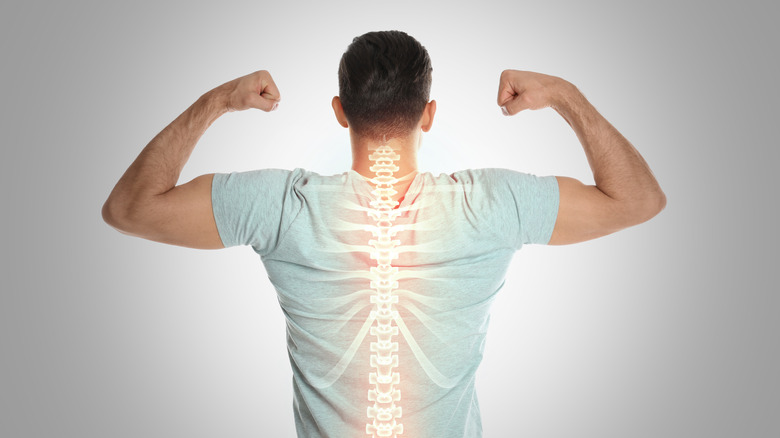How Weight Loss Can Affect Your Bone Density
Our musculoskeletal system serves as a base for our body's structure. It enables motor activities, provides protection to our vital organs, maintains the body's shape, and, most importantly, it stores minerals. For our skeletal system to work efficiently, we need our bones to be healthy.
One way to ensure our bones are healthy is to keep our bone mineral density (BMD) — commonly known as bone density — in check. So, what exactly do we mean by bone density? According to the National Cancer Institute, bone density is the number of minerals, mainly calcium and phosphorus, in a volume of bone or bone tissue. Bone density can be an indirect indicator of bone strength. Measuring it can help foresee several health conditions such as osteopenia (decreased bone mass), osteoporosis (thin, weak bones), breast cancer in women, and predicting the risks of fracturing your bones in the future.
Several factors may contribute to low bone mineral density. The first and the most common factor is age. As people grow old, their bone mineral density decreases. This is because their body reabsorbs existing bone cells faster than the rate at which new cells are produced. This process starts taking place at middle age and advances as one grows older. Other factors to low bone mineral density include exposure to radiation, chemotherapy, the use of medications such as steroids, problems related to metabolism, and eating disorders. Smoking, drinking, and a family history of bone health issues are also prime factors.
Rapid weight loss might not be the best thing for your bones
One of the primary reasons for a decreased bone density is eating disorders. Obesity is linked to increased bone strength, size, and density, but it does not protect the bone from fractures. While being skinny or rapid weight reduction due to eating disorders such as anorexia nervosa or bulimia is linked to decreased bone mineral density, losing weight rapidly can prove detrimental to your bones.
So what exactly causes it? According to the National Institutes of Health, the decline in bone mineral density during weight loss is caused by the decreased mechanical loading of bones during movement and increased calcium loss. Weight loss, for sure, has been linked with reduced bone density, but not every form of weight loss results in a reduced bone density. Rapid weight loss that involves low-energy diet plans with less than 800 calories per day only, or starving yourself, aids in decreasing bone density and is known to cause permanent damage to the bone density in post-menopausal women.
So how does one deal with it? As per WebMD, Leslie Bonci, MPH, R.D., director of sports nutrition at the University of Pittsburgh, acknowledges that exercise stimulates bone growth. However, cutting just calories will cause rapid weight loss, which will harm you in two ways. You will lose out on the important minerals and nutrients required to maintain healthy bones, and you will fail to stimulate bone growth. Unhealthy diets will help you lose weight but at the cost of your bone density.
The secret to healthy bone density lies in effective weight loss
Does this mean that people that need to lose weight should give up on the idea? Absolutely not! There are healthier ways to lose weight, and there is more to weight loss than just cutting down on sugar and carbs and having salads for breakfast, lunch, and dinner.
The healthiest way to lose weight without decreasing your bone mineral density is to add exercises and exertion to your weight loss regime. Recent studies show that combining moderate calorie restriction with regular exercise results in weight loss and improves mortality risks, which also benefits from maintaining a healthy muscle mass and bone mineral density. In addition, exercise and training reduces bone mineral density loss and the risk of fractures in the future.
Studies also reveal that calorie-restricted diets hinder calcium intake. The intake of supplements like vitamins and calcium during calorie-restricted diets can also help maintain and even increase bone mineral density. People cut down on a significant amount of essential nutrients during weight loss, so taking supplements is necessary because they make up for the lost nutrients. According to Science Daily, the intake of high-protein meals combined with meat, eggs, and dairy products that are low in fat, can also help you lose weight without decreasing bone mineral density. So, in conclusion, the combination of proteins, calcium, and vitamins protects bone mineral density during weight loss.



